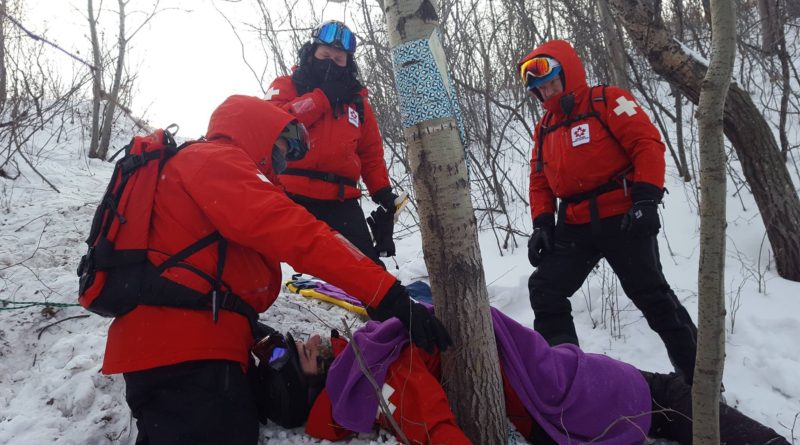Mentoring: A Personal Reflection
Mentoring: A Personal Reflection
“I vividly remember my first call to an accident as a new patroller. It was my second shift, and I was closest to the location when the call came in. I nervously radioed my Team Leader to say I was on my way to the scene. A senior patroller immediately came on the radio and said, “John, head in there and get started. I will be there with you quickly.” Knowing that I was going to have some assistance helped me feel a lot less anxious as I approached the patient and began the primary assessment.
Shortly after the senior patroller arrived, I began to describe the situation and what I thought we should do, thinking to myself, “I am new at this. I will let him do it and watch.” Rather than taking over and leaving me to observe, my veteran partner stood back and said, “You’ve got this under control. Let me know what you need me to do.” Not expecting to lead the situation, I continued to assess and treat the patient while asking my partner numerous questions.
Once we had cleared the site and finished with the patient, we debriefed to see how I felt about the event. I finished the shift feeling much more confident. I had handled the situation while being coached through it rather than handing it off to the senior member of the patrol.
A similar situation occurred when, as a relatively new member, I assumed the role of Zone President. Several senior members of the zone were fantastic mentors, always answering my questions and providing guidance without taking control or pushing decisions one way or another. Through their encouragement and respect, they bolstered my confidence and ability to succeed as Zone President.
If you are reading this, you are likely one of the many dedicated ski patrollers who are passionate, energetic, and competent in a variety of first aid situations. Though these are admirable qualities, they may sometimes overwhelm or intimidate new members who are starting to develop their skills and take initiative. Indeed, at times it may feel easier to do it yourself or to tell a new patroller how things should be done. You will have greater positive impact on less experienced patrollers, however, if you offer them the opportunity to test and develop their skills.
If you have been a member or a leader of the Canadian Ski Patrol for some time, keep your role as a coach and mentor in the forefront of your thinking. When you support new ski patrollers’ skill development by coaching and mentoring from the sidelines, you build the capacity of the entire patrol.”
John Jesse

